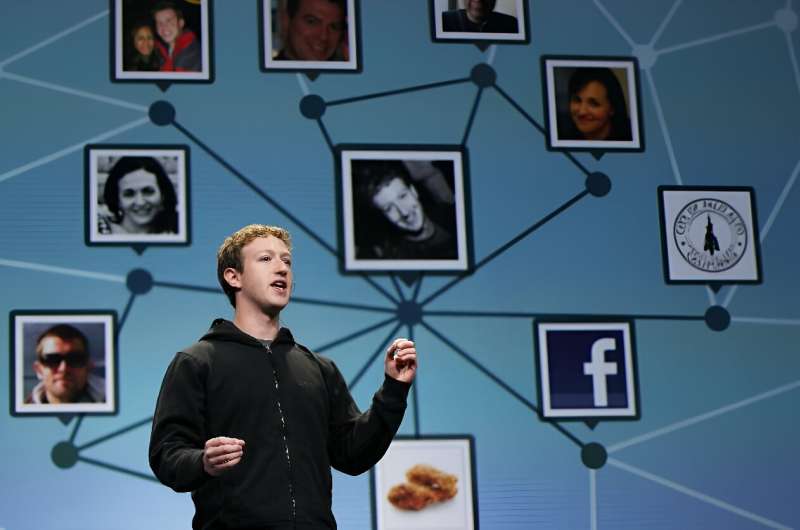
Founded 20 years ago as a simple hangout spot for young people, Facebook has since become a battle-hardened behemoth that—despite perceptions of being for boomers and parents—continues growing and growing.
"I will never forget the day that I ran up to my high school's Mac lab and signed up for Facebook," Insider Intelligence analyst Jasmine Enberg told AFP.
"You simultaneously felt that you were part of this small, exclusive community where your parents, grandparents and teachers weren't—but also part of something much larger."
Launched as thefacebook.com by Mark Zuckerberg and three friends on February 4, 2004, the site was originally restricted to Harvard College students.
It became available to students at other US universities before opening to anyone in 2006.
Facebook became a venue for connecting with just about anyone, anywhere and by 2023 reported being used by more than 3 billion people monthly—a three percent growth over the previous year.
"Facebook, when it launched, was revolutionary," Enberg said.
"It's hard to overstate the impact that Facebook has had on shaping everything from pop culture to politics to how we behave online."
She noted Facebook's famous "feed" that served up photos, comments, or other "posts" its algorithm figured would grab the attention of users.
The more users engaged with the social network the more it could serve up money-making ads targeted using the vast amount of information people shared at Facebook.
It is credited with having helped open the door for content to "go viral" and fueled the trend of online-only news outlets.
Ad behemoth
Facebook gained a reputation for buying or copying potential rivals, now boasting a "family" of apps including Instagram and WhatsApp.
Zuckerberg, who still heads the company, stuck to a strategy of investing heavily to gain users before integrating money-making methods that usually involved targeted ads.
Along with Google, Facebook became an online advertising giant.
In 2022—a bad year for the Silicon Valley-based company—its profits reached $23 billion.
The platform "is part of the digital landscape", particularly for "millennials" born in the 1980s or 1990s, according to Enberg.
"It remains irresistible to advertisers, thanks to its reach and performance," the analyst said of Facebook.
A business model built on using people's personal data to offer more attention-grabbing content and targeted ads has earned Facebook complaints and fines.
Fresh off accusations that Russia used the platform to try to influence the outcome of the 2016 presidential election, it became embroiled in the Cambridge Analytica data-harvesting scandal.
In 2021, it came under fire over whistleblower accusations that executives put profit over the safety and well-being of users.
Despite it all, Facebook has continued to grow.
And the tech titan's expansion has allowed it to invest in innovations including artificial intelligence and virtual reality.
Facebook changed its parent company name to "Meta" in late 2021, saying it was due to Zuckerberg's vision of immersive, virtual worlds referred to as the "metaverse" being the next major computing platform.
© 2024 AFP
Citation: Facebook, the social network old-timer, turns 20 (2024, February 1) retrieved 1 February 2024 from https://techxplore.com/news/2024-02-facebook-social-network-timer.html
This document is subject to copyright. Apart from any fair dealing for the purpose of private study or research, no part may be reproduced without the written permission. The content is provided for information purposes only.
